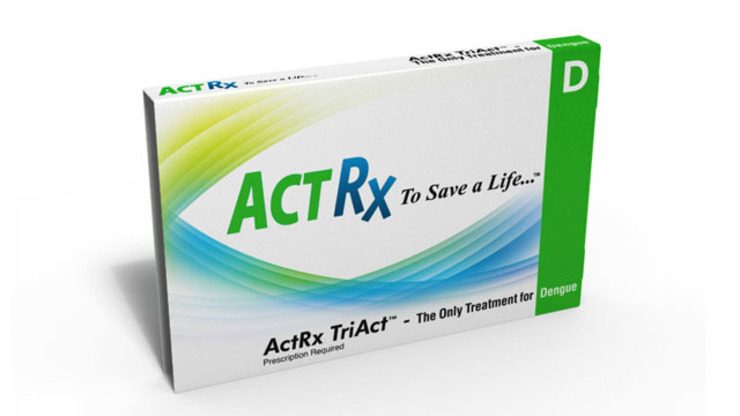SUMMARY
This is AI generated summarization, which may have errors. For context, always refer to the full article.

MANILA, Philippines – The clinical trials of the ActRx TriAct is the latest controversy to hit Health Secretary Enrique Ona after his own department – currently under Acting Secretary Janette Garin – said there is no legal basis for the anti-dengue treatment to be in the Philippines.
The Department of Health (DOH) said the treatment – a herbal-based combination of Artesunate, Berberine, and Artemether – has not yet been registered with the Food and Drug Administration (FDA) as food, drug, or supplement.
In a document released Monday, December 1, DOH listed 5 reasons why it considers the use of ActRx TriAct for clinical trials as dangerous, and why the trials were not approved by FDA, the Research Institute for Tropical Medicine, and the DOH’s National Center for Disease Prevention and Control:
- Berberine, one of the components of ActRx TriAct, has no known or established medicinal effect against malaria or dengue. It needs further analysis.
- To date, Arthemeter is the only effective treatment against the deadliest form of malaria, but it must be combined with two other medicines (Lumifantrine and Primaquine) to be effective.
- Resistance to Arthemeter may occur if used as a single therapy or monotherapy medicine for malaria instead of combining it with Lumifantrine and Primaquine. The Philippines is already in the elimination phase for malaria; resistance will be “devastating and disastrous.”
- Combining Artemether as a sublingual spray with Berberine and Artesumate tablets to fight dengue poses side effects.
- There is no plausible explanation available on how Artemether and Artesunate – the treatment’s two other components – might act against dengue.
The document mentioned the World Health Organization’s warning that if the treatment is used in areas where both malaria and dengue are co-endemic – such as the Philippines – resistance to malaria could develop.
It also highlighted that ActRx TriAct “was not scientifically studied before it was used as an experimental drug on Filipinos.”
Ona, who is on extended leave, is awaiting President Benigno Aquino III’s assessment of his performance. He was made to go on leave in October following a probe by the National Bureau of Investigation into complaints his department did not purchase “more cost-effective” vaccines for pneumonia.
Three clinical trials
On September 24 or a month before his leave, Ona ordered the distribution of 2,000 ActRx TriAct to the following government hospitals for clinical trial:
- San Lazaro Hospital
- East Avenue Medical Center
- Dr Jose N Rodriguez Memorial Medical Center
- Amang Rodriguez Medical Center
- Quirino Memorial Medical Center
- Jose B Lingad Memorial Hospital
Supposedly the third clinical trial using ActRx TriAct, Garin suspended the order on November 14 to further evaluate whether the study is complying to “established scientific and ethical standards.”
The first clinical trial of ActRx TriAct for malaria treatment was done in 2012 in some Palawan hospitals, while the second clinical trial for dengue treatment was done in San Lazaro Hospital in 2013.
After its own investigation, FDA in July 2013 ordered the termination of the clinical trials in Palawan “and any similar trial involving the same drug.”
But a 2013 clinical trial in San Lazaro Hospital still pushed through, and the Philippine Institute of Traditional and Alternative Health Care afterwards requested the Philippine Council for Health Research and Development (PCHRD) to review the study.
In a June 10 comment to FDA, PCHRD executive director Jaime Montoya said it was still “too early” to recommend ActRx TriAct for widespread treatment of dengue or even for its inclusion in the Philippine National Drug Formulary.
On Monday, the health department said the researchers of the clinical trials must be held accountable if something happens to patients who were administered with the treatment.
“In not following and complying with the basic protocol of scientific experiments using human subjects, the researchers are endangering the lives of the Filipino people who were given ActRx TriAct without any accountability and transparency,” DOH added. – Rappler.com
Add a comment
How does this make you feel?
There are no comments yet. Add your comment to start the conversation.